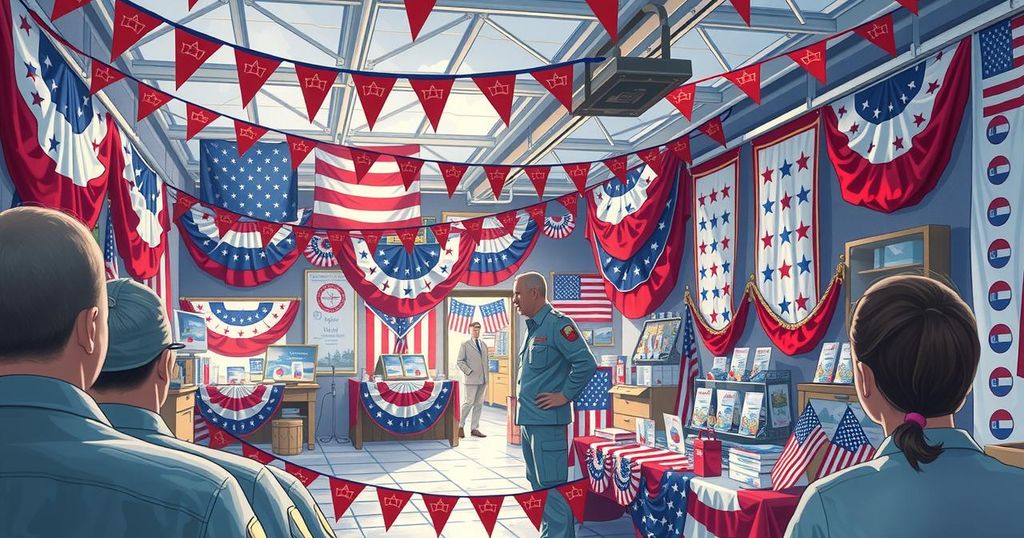Trump’s Remarks at Fort Bragg Signal Political Shift in Military Affairs
President Trump’s recent speech at Fort Bragg introduces further concerns about military deployment in California, hinting at a troubling merge of military affairs and partisan politics. The event featured a politically curated audience and the sale of MAGA merchandise. Graham Parsons, a former West Point professor, shared his concerns about this disturbing trend and its constitutional ramifications.
President Trump’s recent remarks at Fort Bragg have sparked serious concerns regarding his military presence in California. During a highly partisan address, he spoke to a crowd seemingly selected for their political views and rather shockingly, merchandise supporting his Make America Great Again (MAGA) slogan was sold on a military base. News anchor Amna Nawaz explored this with Graham Parsons, a former West Point philosophy professor, who resigned last month in protest of the administration’s educational policy restrictions.
Amna Nawaz kicked off the discussion by asking about the situation in Los Angeles. The president has now deployed hundreds of Marines and thousands of National Guard troops against Governor Gavin Newsom’s wishes to control civilian protests. Parsons didn’t sugarcoat anything, expressing deep concerns about this military deployment. He pointed out, “This is… a law enforcement issue. Law enforcement is very different from war…. War doesn’t regard constitutional rights.”
Parsons warned that deploying military forces for law enforcement blurs critical lines. He voiced his fears that the current political climate might even lead the administration to invoke the Insurrection Act, which could mean martial law. This, he argued, would challenge the very fabric of constitutional order, saying, “There’s a really profound constitutional problem here.”
As the conversation flowed, Amna pointed out how this politicization of military intervention isn’t simply a unique situation but part of a disturbing trend. Parsons elaborated that these conflicts are politicized, pointing to the derogatory language used by the administration against protesters, framing them as “animals” and “criminals”—a dangerous rhetoric that he believes undermines the unity of the nation.
The discussion naturally shifted to the Fort Bragg event where Trump had delivered more partisan commentary. Audience members reportedly handpicked for their political leanings added to the flavour of the event. Interestingly, Parsons stated, “What does all of this say to you about the longstanding line between the military and partisan politics? Oh, it’s in grave danger.” He expressed disgust that what was once a clear divide is now being dismantled under the Trump administration’s influence.
In terms of future events, attention was drawn to an upcoming military parade to celebrate the Army’s 250th anniversary, coinciding with Trump’s 79th birthday. Here’s the kicker: the planners, according to Parsons, are explicitly linking the event to the president. He summarised, “It’s not just a celebration of the Army. It’s a celebration of the president.” In essence, this upcoming parade exemplifies what Parsons warns against: the exploitation of military honour for political gain.
As these discussions continue, it appears many are braced for the unfolding dramatic intersection of military service and partisan politics—concerns that many are echoing as both grave and provocative.
The intersection of military and partisan politics is being increasingly blurred under the Trump administration. With remarks at Fort Bragg that featured selected audiences and merchandise sales, the danger of militarizing law enforcement raises serious constitutional questions. Experts like Graham Parsons highlight the risks, warning of the potential normalization of military involvement in political conflicts, especially as future military events seem designed to intertwine the military’s image with the president’s personal brand. This scenario, they argue, could have lasting impacts on the American public’s perception of the military’s role in society.
Original Source: www.pbs.org
